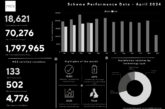
Martyn Bridges, Director of Technical Services at Worcester Bosch discusses why 2023 may be a pivotal year in the heating industry.
A year of change
2023 promises to be a busy year for the industry with a number of consultations expected to be published. Over the last few years, a backlog of consultations has accumulated, which is understandable when you consider the ever-changing political landscape where we have seen three different prime ministers in 2022 and with that, three different energy ministers. The lack of a consistent government to provide a steer has made for difficult terrain for the industry to navigate.
Reform takes time
It is not easy to estimate to what extent policy changes will be imposed or introduced in 2023 as the nature of these consultations tend to take around a year to come to any conclusions. There is normally a publication then two or three months to allow respondents to read and digest the proposals. This is followed by two or three months for the government to answer the queries that arise from the consultation. This process may go around again with another more focused consultation before a policy introduction is finally planned. With the current state of play, we anticipate most new legislation to be centred on reducing CO2 emissions, largely by introducing caps on appliances for how much carbon they can produce.
What can we expect?
The introduction of new policy in this vein will pave the way for more environmentally friendly innovations in the heating industry, primarily heat pumps. While we fully expect the heat pump market to start showing significant signs of growth, there is however the harsh reality of the cost-of-living crisis that is being felt nationwide. With the reduction of discretionary spend being limited and most Britons focusing on the essentials, this has the potential to stunt the growth in demand for the heat pump market.
In the context of a level playing field without the economic obstacles we are all currently facing, we are expecting the heat pump market to start growing at pace – supported in large part by the boiler upgrade scheme grant. This is in accompaniment with the planned introduction of clean heat mechanism targets that are being introduced to boiler manufacturers that will put a heat pump quota in place to ensure sufficient supply.
Overall, the kinds of policies or consultations we can expect this year will be those focused on moving us closer to achieving the net zero target. Naturally, this will be done by prompting further uptake in heat pumps both from a consumer and a trade perspective. It is advised that those within the industry should prepare accordingly and train appropriately to meet the resulting future demand in this space.
When can we expect change?
Due to the backlog of consultations, it is estimated that the majority of these policy changes are going to occur towards the end of 2023 and throughout 2024. There are a number of impending deadlines that will see policy changes as a priority in order to meet these – such as the banning of oil fire boiler replacements in commercial buildings from 2024.
Further along the line, the Future Homes Standard will become a reality in 2025 which means that properties built to the new regulations must be 75 – 80% lower in CO2 emissions than a property built to the 2018 standard. This will work in tandem with the introduction of the clean heat mechanism target and will make a seismic reduction in domestic carbon output.
It is an interesting time for the industry as a whole, but the overwhelming trajectory is towards a zero-carbon future. We hope that with a more stable government in place, this will mean a clearer direction for the industry and allow for the industry to prepare for a cleaner, greener future.













